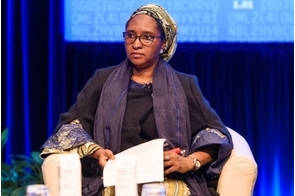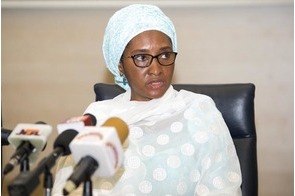Latest News
Nigeria’s public debt rises by 34 per cent to N16.3 trillion

News Highlight
- Nigeria’s total public debt rose 34 per cent largely due to the impact of the devaluation of the naira on the country’s foreign currency debt stock.
Nigeria’s total public debt – including federal and state governments’ debts – rose by 34 per cent year-on-year due largely to the impact of the devaluation of the naira on the country’s foreign currency debt stock.
Total public debt stock stood at N16.29 trillion as of June 30, 2016, compared to N12.12 trillion as of June 30, 2015, according to the latest figures released by the Debt Management Office (DMO). The Central Bank of Nigeria official exchange rate used for obtaining the naira equivalent of the foreign debt stock is N283 per dollar, which was the rate as of June 30, 2016 as against N197 per dollar in a similar period of last year.
In June this year, the CBN floated the naira on the interbank foreign exchange market after ending its controversial currency peg. The CBN’s move has caused the naira to fall by nearly 60 per cent against the dollar from N197 per dollar to around N315 currently.
The DMO said Nigeria’s total foreign debt stock stood at $11.26 billion or N3.19 trillion as of June 30, 2016 compared to $10.32 billion or N2.03 trillion in a similar period of last year.
A breakdown of total foreign debt shows that the federal government accounted for $7.61 billion while states accounted for $3.65 billion. The five most indebted states are: Lagos – $1.43 billion; Kaduna – $225.28 million; Edo – $179.52 million; Cross River – $141.47 million; and Ogun – $103.55 million.
The five least indebted states are: Borno – $21.89 million; Taraba – $23.01 million; Yobe – $29.29 million; Jigawa – $32.62 million; and Kogi – $33.56 million. The domestic debt profile of the 36 states and Abuja rose by 48 per cent to N2.5 trillion in June this year from N1.69 trillion in June last year.
According to the DMO, the domestic debt stock of the federal government rose by 26 per cent year-on-year to N10.61 trillion in June this year from N8.4 trillion in June last year. A breakdown of the federal government’s domestic debt profile shows that FGN bonds accounted for 70.46 per cent; treasury bills, 27.36 per cent; and treasury bonds, 2.18 per cent.
The principal sources of Nigeria’s foreign debt are: World Bank Group, $6.85 billion; African Development Bank Group, $938.91 million; International Fund for Agricultural Development (IFAD), $103.01 million; European Development Fund (EDF), $71.47 million; Islamic Development Bank (IDB), $19.87 million; and the Arab Bank for Economic Development in Africa (BADEA), $5.52 million.
Other sources are: Exim Bank of China, $1.5 billion; French Development Agency (AFD), $182.95 million; Japan International Cooperation Agency, $80.44 million; and KfW (the German development bank), $11.66 million. Besides loans from multilateral and bilateral institutions, Nigerian has outstanding Eurobonds valued at $1.5 billion.
Related News
Latest Blogs
- CBN is fighting inflation instead of stagflation
- Why electricity privatization failed (2)
- How net metering can boost embedded power generation
- Adaora Umeoji and gender in Nigerian banking leadership
- Is protest an endangered human right of Nigerians?
Most Popular News
- IFC, partners back Indorama in Nigeria with $1.25 billion for fertiliser export
- Ali Pate to deliver keynote speech at NDFF 2024 Conference
- Univercells signs MoU with FG on biopharmaceutical development in Nigeria
- CBN settles backlog of foreign exchange obligations
- CBN increases capital requirements of banks, gives 24 months for compliance
- Euromonitor forecasts Sub-Saharan Africa GDP to grow to $4.5trn by 2040






